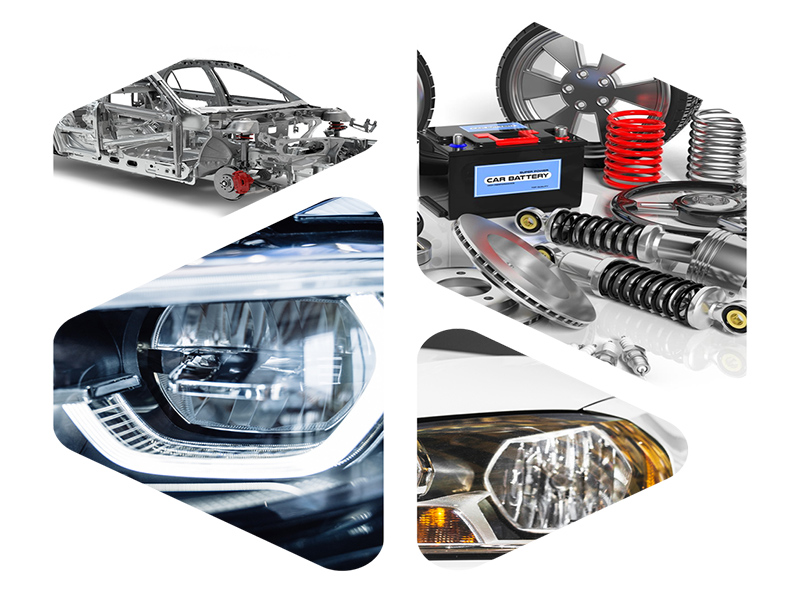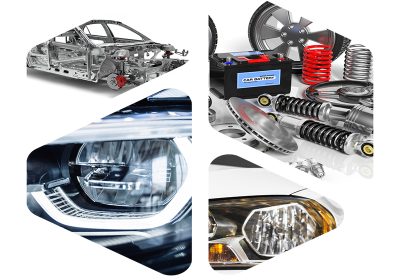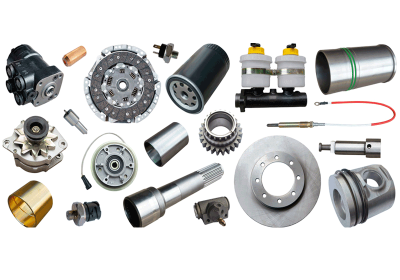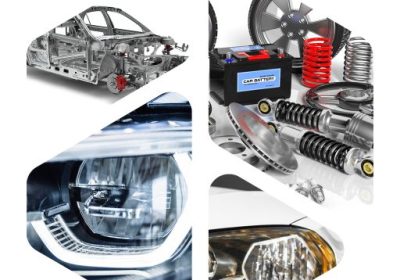Exploring the Availability of European Commercial Vehicles OEM Spare Parts in UAE

The European commercial vehicle industry is a dynamic and vital sector that greatly influences global transportation and logistics. Central to this industry’s efficiency and reliability are Original Equipment Manufacturer (OEM) spare parts. These components, designed and manufactured by the original vehicle maker, are essential for maintaining the performance, safety, and longevity of commercial vehicles.
Genuine Auto Spare Parts Dubai are known for their high quality and compatibility with specific vehicle models. Unlike generic or aftermarket parts, they are made to the exact specifications and standards of the original vehicle, ensuring a perfect fit and optimal performance. This is especially crucial in commercial vehicles, where safety and reliability are paramount.
Aspects That Influence the Availability of European Commercial Vehicles’ OEM Spare Parts in UAE
- The European Commercial Vehicle Market
Europe’s commercial vehicle market is diverse, encompassing a wide range of vehicles from light commercial vans to heavy trucks and buses. This market is characterized by its high standards in terms of vehicle quality, safety, and environmental regulations. European commercial vehicles are renowned for their durability, advanced technology, and adherence to stringent emission standards.
The Role of OEM Spare Parts
OEM spare parts play a crucial role in maintaining the efficiency and safety of these vehicles. Regular maintenance and timely replacement of parts using OEM components ensure that vehicles operate at peak performance. This not only extends the life of the vehicle but also ensures compliance with safety and environmental regulations. Fleet operators often prefer OEM parts for these reasons, despite the potentially higher costs compared to aftermarket parts.
Recent Trends Influencing the Market
The European commercial vehicle market has been experiencing significant changes driven by technological advancements and environmental regulations. The shift towards electric and hybrid vehicles is altering the demand for specific types of spare parts. Additionally, the industry is seeing a greater focus on telematics and intelligent transportation systems, influencing the types of components used in modern vehicles. The push for lower emissions has also led to the development of more environmentally friendly components, aligning with global sustainability goals.
2. OEM vs Aftermarket Parts
OEM parts are manufactured by the original equipment manufacturer of the vehicle, ensuring a high level of quality and compatibility. Aftermarket parts, on the other hand, are produced by different companies and may vary in quality and fit. While OEM parts are designed specifically for a particular model, aftermarket parts are often designed to be more generic.
The primary advantages of using OEM parts include assured quality, guaranteed compatibility with the vehicle, and often a warranty from the manufacturer. These factors contribute to maintaining the vehicle’s value and performance. However, OEM parts can be more expensive and less readily available than aftermarket alternatives.
Aftermarket parts offer a cost-effective alternative and are usually more accessible. However, the quality and compatibility can vary significantly, potentially affecting the vehicle’s performance and safety. Additionally, using aftermarket parts can sometimes void the manufacturer’s warranty.
Choosing OEM parts usually results in better vehicle performance and safety, as these parts are specifically designed for the vehicle model. They also come with the assurance of quality and may include a warranty that can provide added peace of mind. On the downside, their higher cost and sometimes limited availability can be challenging for fleet operators in the UAE. Aftermarket parts, while more affordable and accessible, may compromise on quality and safety, and impact the vehicle’s warranty.
3. Sourcing OEM Parts in Europe
Sourcing OEM spare parts in Europe can be challenging due to various factors like limited availability, especially for older or less common vehicle models. The high demand for specific parts often leads to shortages, and there can be significant delays due to logistics and transportation issues, especially in remote areas.
Recommended Suppliers and Distribution Channels
To mitigate these challenges, it’s advisable to source parts from reputable suppliers. Official dealerships such as Isher Trading are usually the most reliable source for OEM spare parts Dubai. Additionally, authorized online platforms and regional distributors can offer more accessibility and sometimes better pricing. Networking at industry events can also open up more sourcing avenues.
Tips for Verifying Authenticity of OEM parts:
- Check for official branding and packaging.
- Verify part numbers against the manufacturer’s database.
- Purchase from authorized dealers or reputable suppliers.
- Be wary of prices that are significantly lower than the market rate, as this could indicate counterfeit parts.
4. Technological Advances in Manufacturing of OEM Spare Parts
Recent advancements include the use of high-precision manufacturing techniques, enhanced materials for better durability, and smart components with integrated sensors for advanced diagnostics. These innovations contribute to longer-lasting parts and improved vehicle performance.
Improving Availability and Logistics
Technology has also streamlined the supply chain and logistics. Automated inventory systems, AI-driven demand forecasting, and efficient distribution networks have improved the availability of parts. Online platforms and digital catalogs make it easier to locate and order specific parts.
Future Technologies
Looking ahead, technologies like 3D printing promise to revolutionize spare parts manufacturing by enabling on-demand production. Additionally, smart logistics systems using IoT and blockchain technology could further optimize the supply chain, ensuring faster and more secure distribution.
5. Environmental Impact of Manufacturing and Distribution
The production and distribution of OEM parts involve energy consumption, emissions, and resource utilization, all of which have environmental impacts. Transportation of parts over long distances adds to the carbon footprint.
Industry Efforts Towards Sustainable Practices
Many manufacturers are adopting sustainable practices like using recycled materials, reducing waste in production, and optimizing logistics for lower emissions. The shift towards producing parts for electric and hybrid vehicles also reflects a move towards sustainability.
Role in Eco-Friendly Operations
Using high-quality OEM parts ensures longer vehicle life and better fuel efficiency, contributing to lower emissions over the vehicle’s operational life. This aligns with the broader goal of reducing the environmental impact of commercial transportation.
6. Legal and Warranty Implications
Using genuine OEM parts often ensures that the vehicle’s warranty remains valid. Many manufacturers stipulate that the use of aftermarket parts can void the warranty, especially if the part causes damage to the vehicle.
Commercial vehicle operators are legally obligated to maintain their vehicles in a safe and roadworthy condition. Using OEM parts ensures compliance with safety standards and regulations, reducing the risk of legal issues related to vehicle maintenance.
Using OEM parts ensures adherence to the high standards set by vehicle manufacturers and regulatory bodies, thereby ensuring compliance with industry norms and legal requirements.
7. Market Dynamics: Demand and Supply
The demand for OEM spare parts in Europe is influenced by factors like the growing number of vehicles on the road, ageing vehicle fleets, and stringent regulations requiring high-quality maintenance. Supply challenges include logistics disruptions, manufacturing delays, and the impact of global events like the COVID-19 pandemic.
Influencing Factors
Economic conditions, technological advancements, and changes in environmental regulations significantly influence market dynamics. Additionally, the global supply chain’s complexity can affect the availability and cost of parts.
Future Outlook
The demand for OEM parts is likely to increase with the growth of the commercial vehicle market in Europe. Technological advancements and a shift towards more sustainable practices are expected to continue shaping the supply dynamics. The market may also see changes due to evolving vehicle technologies, including the rise of electric and autonomous vehicles.
Informed Decision-Making in Commercial Vehicle Maintenance
In the ever-evolving landscape of the commercial vehicle industry, staying informed is not just a matter of good practice—it’s a necessity. The choice of spare parts, whether OEM or aftermarket, has far-reaching implications on the performance, safety, and longevity of your fleet. In the context of European commercial vehicles operating in the UAE, opting for OEM spare parts ensures compatibility, quality, and adherence to safety standards, which are indispensable for the smooth operation of commercial vehicles.
For those who prioritize quality and reliability, Isher Trading offers a solution. We specialize in providing OEM spare parts for a range of prestigious brands, including MAN, VOLVO, SCANIA, RENAULT, DAF, and IVECO and MERCEDES BENZ OEM/Genuine Spare parts Dubai. Our extensive inventory caters to your specific needs, ensuring that your vehicles receive parts that match the exacting standards of their original manufacturers. Order your Commercial Vehicles OEM spare parts from us today and experience the peace of mind that comes with quality and reliability.



